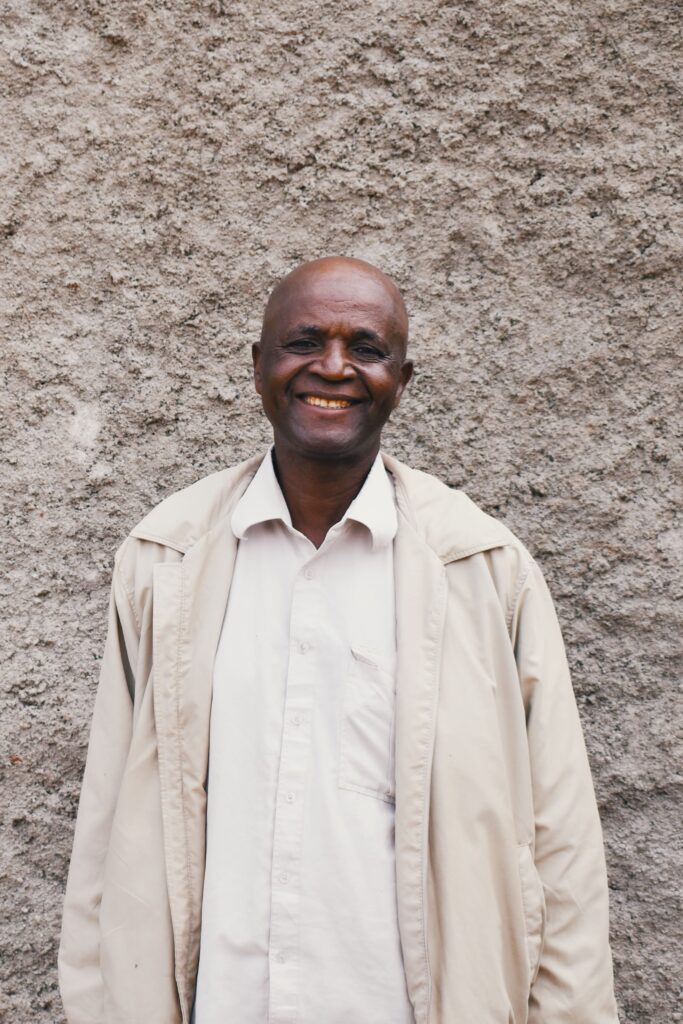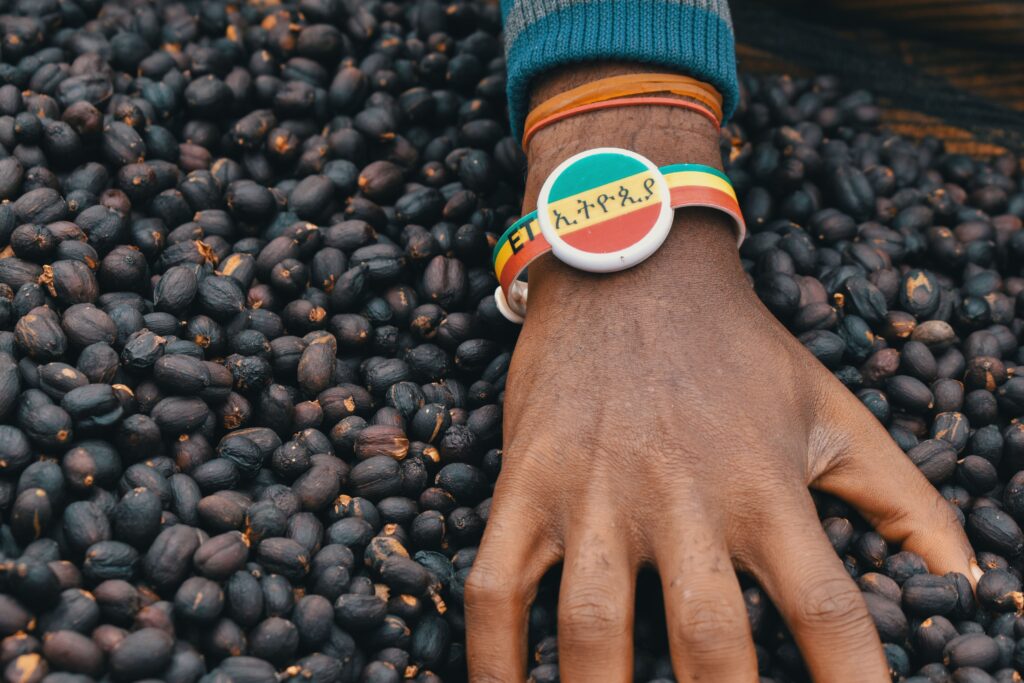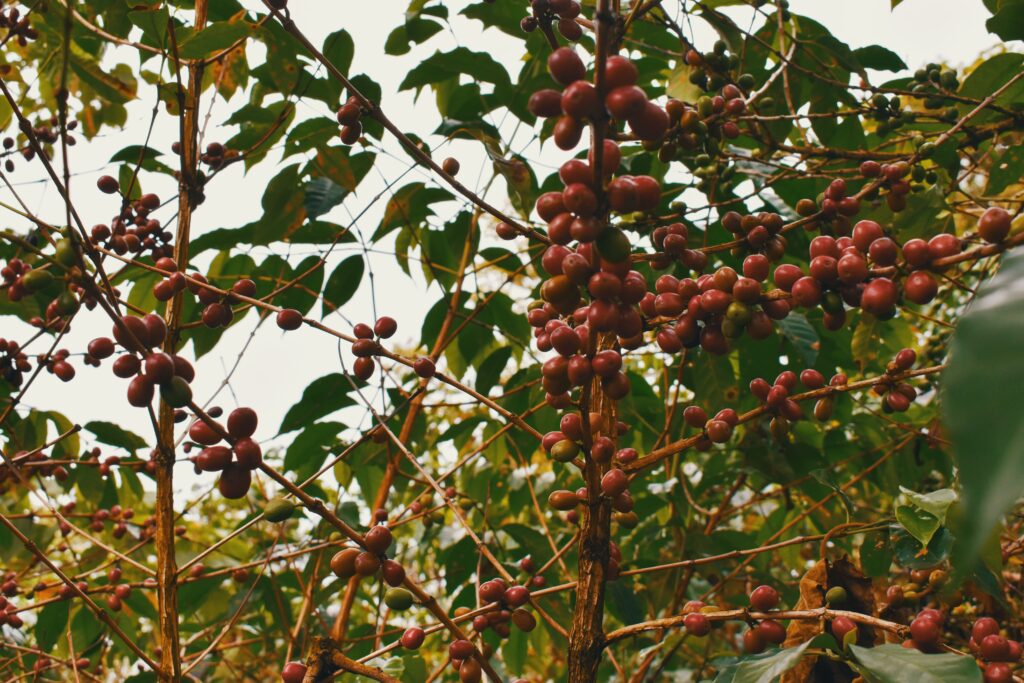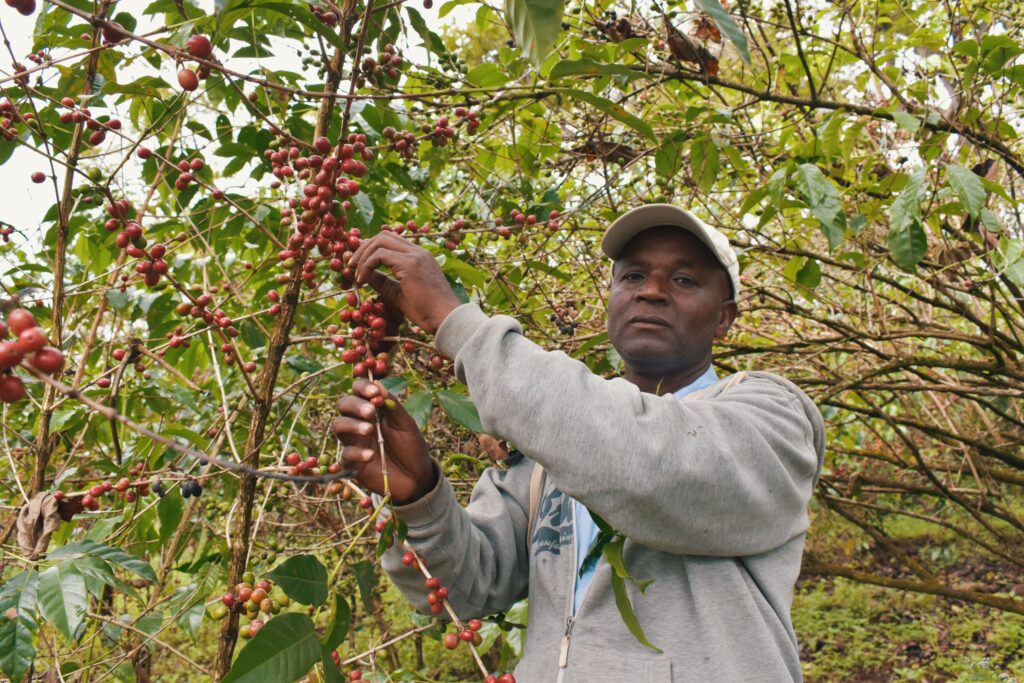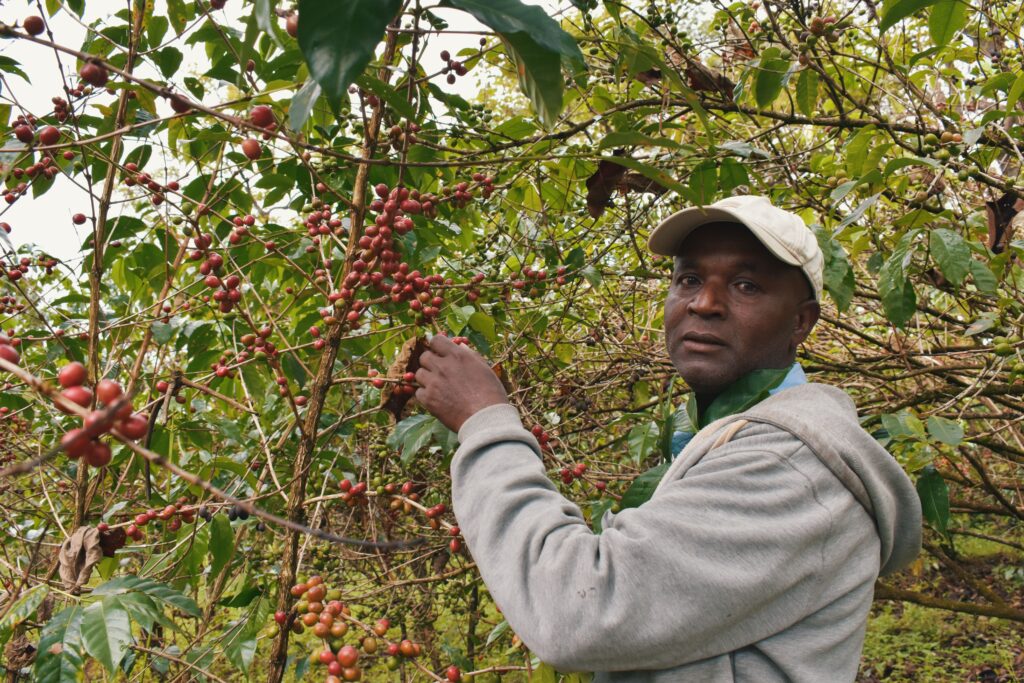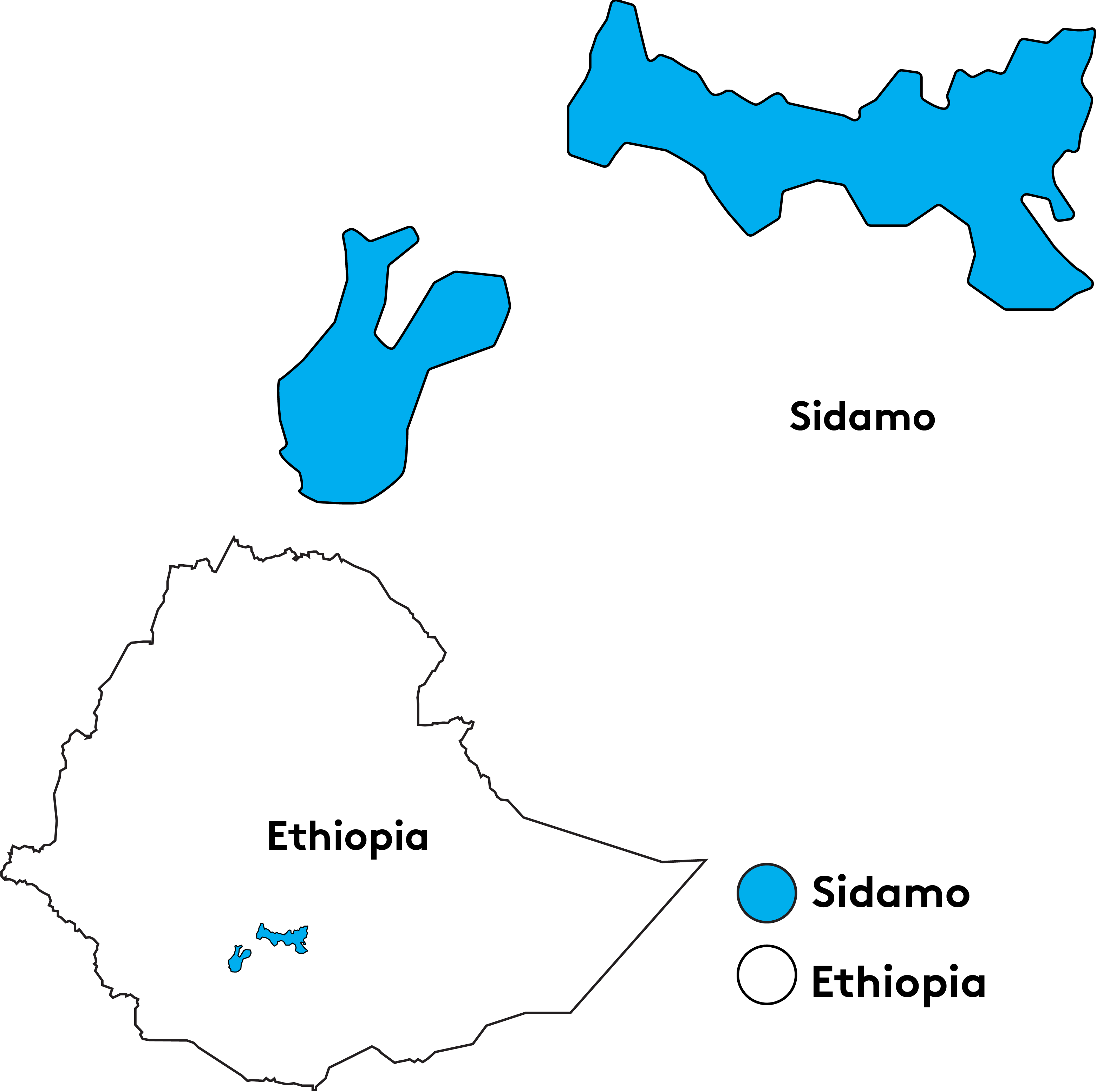For over two decades, Bekele Kachara has been dedicated to coffee cultivation, managing several farms in the Bensa wordea of the Sidama region. This dedication is evident in the quality of the coffee grown on his land near Murago village. Together with his wife, Mrs. Abinet Mekonnen, Bekele raises thirteen children, with four of them actively involved in the family’s coffee production.
Bekele employs a meticulous approach to coffee farming, using shaded pre-drying coffee beds on-site and nurturing specific coffee varieties, including indigenous heirloom varieties #74158, #74112, and #74110. These varieties yield approximately 70 (60kg) bags of green coffee per year on his 4.5-hectare farm
Although Bekele’s coffee isn’t certified organic due to the high costs of certification for small-scale growers, he uses organic methods, fertilizing his farm with compost or agricultural residues. While he doesn’t own a washing station, Bekele hires seasonal and daily laborers to assist with selective harvesting, drying, and transport.
Bekele’s expertise in coffee processing comes from years of experience, including work at independent businesses and cooperative-owned washing stations in the Bensa and Bona districts of the Sidama region. He continuously seeks to expand his coffee farm business, aiming to produce high-quality coffee through innovation and improvement.
Bekele works in partnership with ZEM Coffee, a vertically integrated coffee company founded by Ethiopian and American trio Zele, Emily, and Michael. ZEM’s team and founders have been pivotal in the development of Bensa, Sidama area as a globally-recognized quality origin, beginning with the 2013/14 harvest and really deepening with each year as they first introduced “Bensa” coffees to their clients and then began, with their partners, to isolate first by area and then to the village, such as Boekelman, and Shantawene.
International recognition followed, including numerous awards including multiple Good Food Awards, several top Gold Bean Awards, and various other coffee competitions due to the distinctive flavor, high density, and unique qualities of these coffees.
In the 2017/18 harvest year, the ZEM founders further deepened their partnerships with these producers by isolating individual farms and supporting these producers to export coffees through their own export licenses, bringing them enormous financial benefits despite the very high workload required to pull it off.
In 2019, the ZEM team introduced Ethiopia’s first Two-Way Transparency Project to the producers in Bensa as part of the annual, all-expenses-paid, conference they’ve held to support communications and strategy since 2018. This groundbreaking project was led by Emily McIntyre and took private financial data from 14 North American roasters in categories such as their personal take-home pay, the cost to roast and ship a pound of coffee, and other critical metrics, and correlated these numbers to the traceability information usually requested by buyers.
This was also the year the ZEM founders distributed 17% of the profit from their enterprise, Catalyst Trade, back to the producers in Bensa as part of their consistent give-back projects. With the advent of the Cup of Excellence program and increased visibility, other players have supported Bensa to its current desirable position, and the ZEM/Ethio-Catalyst team remains proud to be such an integral part of this progress.
